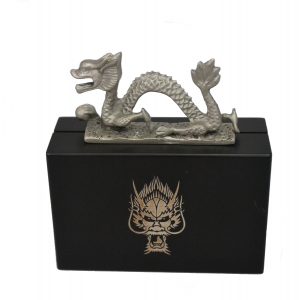 Visitors to China for business are generally aware that gifting is an important part of the culture. We understand that Gifts are often offered and it is appropriate to reciprocate.
Visitors to China for business are generally aware that gifting is an important part of the culture. We understand that Gifts are often offered and it is appropriate to reciprocate.
The concept of gifting is routed in the ancient Chinese concept of Guan Xi ( which translates to personal relationships and sphere of influences). Here Chinese business people build up relationships based on trust and dependable behavior. Gifting is an acceptable part of these relationships reflecting respect and reciprocity.
That being said, a problem arose when the concept of Guan Xi, was abused which led to rampant corruption, especially in the most recent years.
This issue has been addressed by both the US Government with its Foreign Corrupt Practices act and the Chinese Government by its Anti-Unfair Competition Law of the PRC. In both cases the law is intended to prevent bribery of officials to obtain or retain business . The FCPA also imposes on public companies the need to keep accurate books and accounting records. To constitute a violation of the FCPA, a gift must be made “corruptly” which means that there must be intent to wrongfully influence the recipient.
For the FCPA the law is about intent to corrupt/influence, but it does not state specific values including no bribe having ever been paid whatsoever. The intent to influence is sufficient for prosecution. In contrast, China values are given for company’s at $1600 and Individuals at $800 (200,000 and 100,000 Renminbi)
There have been a number of spectacular cases recently of US companies prosecuted for breeches of the law. In each case large amounts of money, travel expenditures and other forms of payments to foreign officials were involved. These payments appear never to be in the ceremonial exchange of gifting between leaders. They appear to be patterns of behavior and involving huge amounts of money, often with third parties involved to hide the corrupting behavior.
 This is important as the gift is still an important part of showing respect and building trust between leaders. A thoughtful gift reveals to the recipient that the giver spent time to think about the other person. It reveals that the giver can think about more than their own needs. The gift need not be expensive, it needs to be appropriate to the culture and station of the recipient. A great gift shares culture and gives opportunity for easy discussion not directly to do with business. The best gifts stay displayed in the office or home where it can be admired by others and a memento of the visit.
This is important as the gift is still an important part of showing respect and building trust between leaders. A thoughtful gift reveals to the recipient that the giver spent time to think about the other person. It reveals that the giver can think about more than their own needs. The gift need not be expensive, it needs to be appropriate to the culture and station of the recipient. A great gift shares culture and gives opportunity for easy discussion not directly to do with business. The best gifts stay displayed in the office or home where it can be admired by others and a memento of the visit.
The tradition of gifting will always be a great opportunity to communicate between business partners, that both sides truly value each other. The gift reflects respect and respect builds trust! These new laws in China and the US will not only combat corruption but will have the positive effect of encouraging companies to focus more on the meaning of their gift and less on the value.
The appropriate gift is never corrupting!
